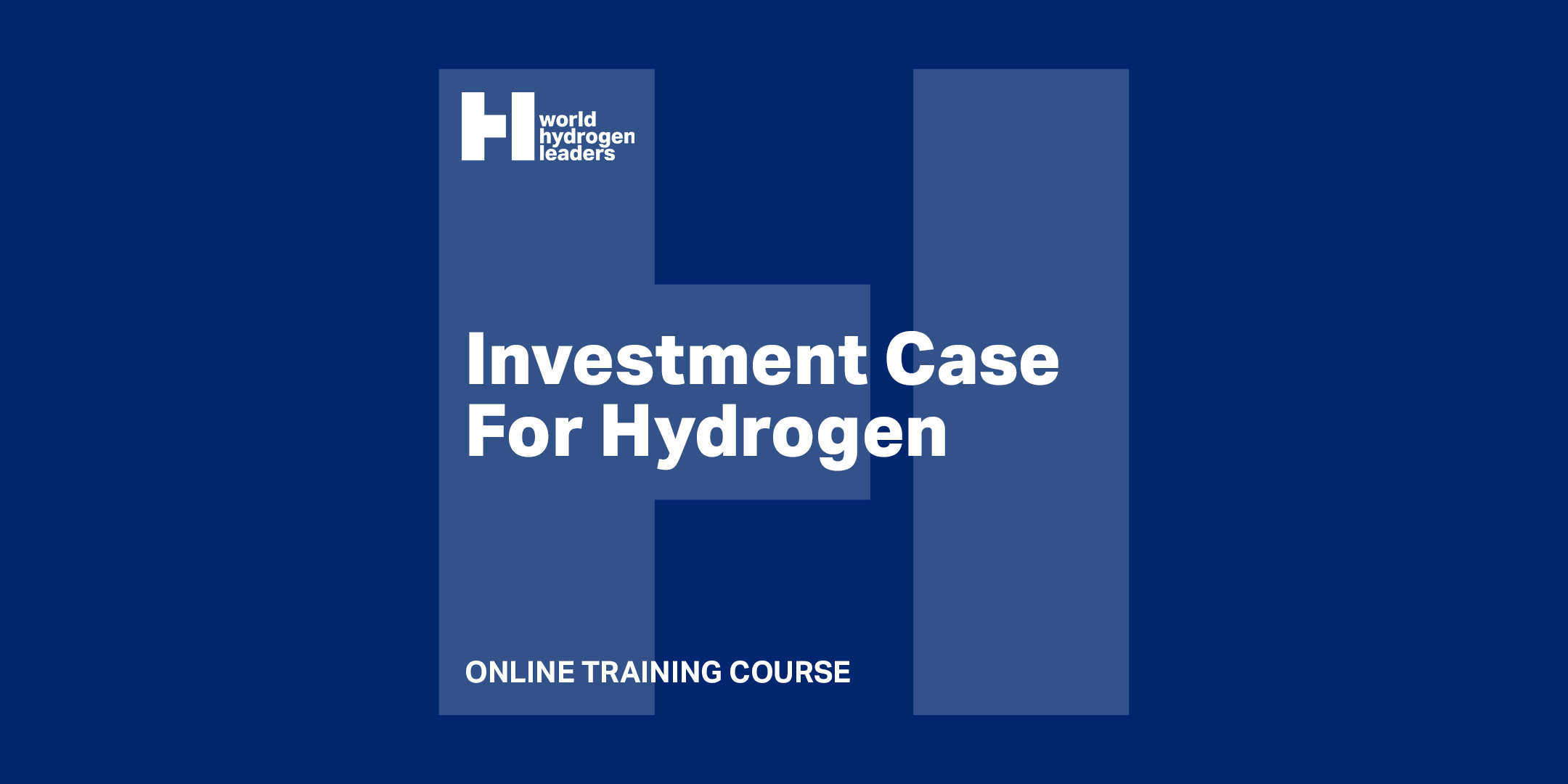Access all recordings and slides through the World Hydrogen Leaders platform with a premium membership.
This course is intended for those seeking a time-effective, wide-ranging and independent perspective on the investment case for opportunities within the rapidly growing market for clean hydrogen.
You will leave with a clearly explained, business-focused perspective on clean hydrogen investment opportunities. Over three information-packed sessions, this online course will provide attendees with a solid grounding in preparing and presenting an investment case for hydrogen taking account of the key technology, business, and organisational issues. The fundamentals of investment analysis will be explained and will be illustrated using practical stories and a basic economic evaluation model. The market opportunities and differing approaches and challenges to delivering hydrogen projects will be discussed with reference to project examples and hands on examination using a basic investment model.
Course Benefits:
Gain a clearer value based understanding of clean hydrogen market opportunities
Clear explanations of economic value, metrics and investment analysis (in language accessible to technical and business people)
Discover the key project shaping and assessment issues for hydrogen projects
Understand the key variables and assumptions that impact the investment case for hydrogen (illustrated using a basic investment model in Excel)
Takeaway a raised understanding of your investment case with the capability of developing further for your specific context.
This Course Includes:
Access to both sessions each lasting approximately three hours
All session recordings & any course materials covered during the course
Interactive format with dedicated Q&A sections with the trainer
Flexible access on any device
A certificate of attendance after full completion of the course
Agenda
Attend live or watch the recordings. Each session includes dedicated Q&A sections throughout.
Session 1: 17th October, 14:00-17:00 CEST
Investment case shaping (technical, business and organisational context)
Technical context
Technology risk in clean hydrogen processes
Comparing the ‘deliverability’ of competing clean hydrogen solutions, in particular ‘green’ vs. ‘blue vs turquoise
Operating requirements for green, blue and turquoise clean hydrogen
Efficiency, equipment life and other factors: from key metrics to business impacts
Business context
Hydrogen targets and specific supports: government policy and regulatory provisions
End-to-end value chain considerations, including options for transporting hydrogen
Competitive and market entry considerations
Options to enhance revenue and share costs - scaling and multiple business streams
Organisational context
Strategic alignment
Project governance process and front end planning
Project delivery capability
Project development considerations; including location, access to land, grid connectivity, and supply chain complexity
Session 2: 18th October, 14:00-17:00 CEST
Fundamentals of Investment Analysis - (choosing the right Investment Case)
Understanding economic analysis
Introduction to the key economic indicators NPV, IRR, Payback and Capital Efficiency
How they are calculated and their use in investment case approval
Focusing on the assumptions
Using a ‘score’ model for assumptions - an approach based on the presenters subject matter expertise of preparing and presenting investment cases
Sanctioning the project - The final investment decision point
Capex - The estimated capital costs of the project
Operating Start-up - The plans for making the project operational
Revenue - The expected net income stream for the project
Endurance - The anticipated life-time of the project
Other considerations
Assessing less tangible and intangible benefits
Sensitivity and scenario analysis, and identifying the competitive advantage
Life Cycle - Residual Value and Decommissioning
Financing options- corporate, investment partners or banks
Government and regulatory factors - grants, revenue support and investment vehicles
Session 3: 19th October, 14:00-17:00 CEST
Practical Example - (preparing and presenting the Investment Case)
Creating an investment model
Step by step creation of a basic investment model for a clean hydrogen project
Develop on a simple excel template a worked example
Adapting the model for specific technical, business and organisational contexts
Preparing the investment analysis
Adaption of the basic investment model for a variety of purposes; to cover financing alternatives; to cover regulatory requirements - tax incentives and grants
Test competitiveness by assessing the competitive advantage versus the alternatives and competitors
Scenario and sensitivity analysis as part of assessing options and risk.
Presenting the investment case
Presenting the investment case for executive approval as part of the organisations project and investment governance process.
Assuring the quality of the investment case - what does a good funding request look like?
Meet the Trainer
Tim Podesta is an independent consultant and active as a subject matter expert and advisor in project management and in particular investment analysis, front end planning and benchmarking/assurance; he has deep experience of the oil, gas, petrochemical and energy industries. Tim is passionate about professional development; learning and sharing learning. He is an experienced trainer and facilitator of live events and can work in English and French. Tim has extensive experience of developing and delivering impactful training and facilitation during a 35 year career at BP.
What Attendees Are Saying
“This course provide a valuable info that can be utilize in the future case that will be established by us as a technical team.”
“Slides were informative, good delivery from the trainer, and the technology worked well. Good idea to space it out over three days as it was less disruptive. ”


